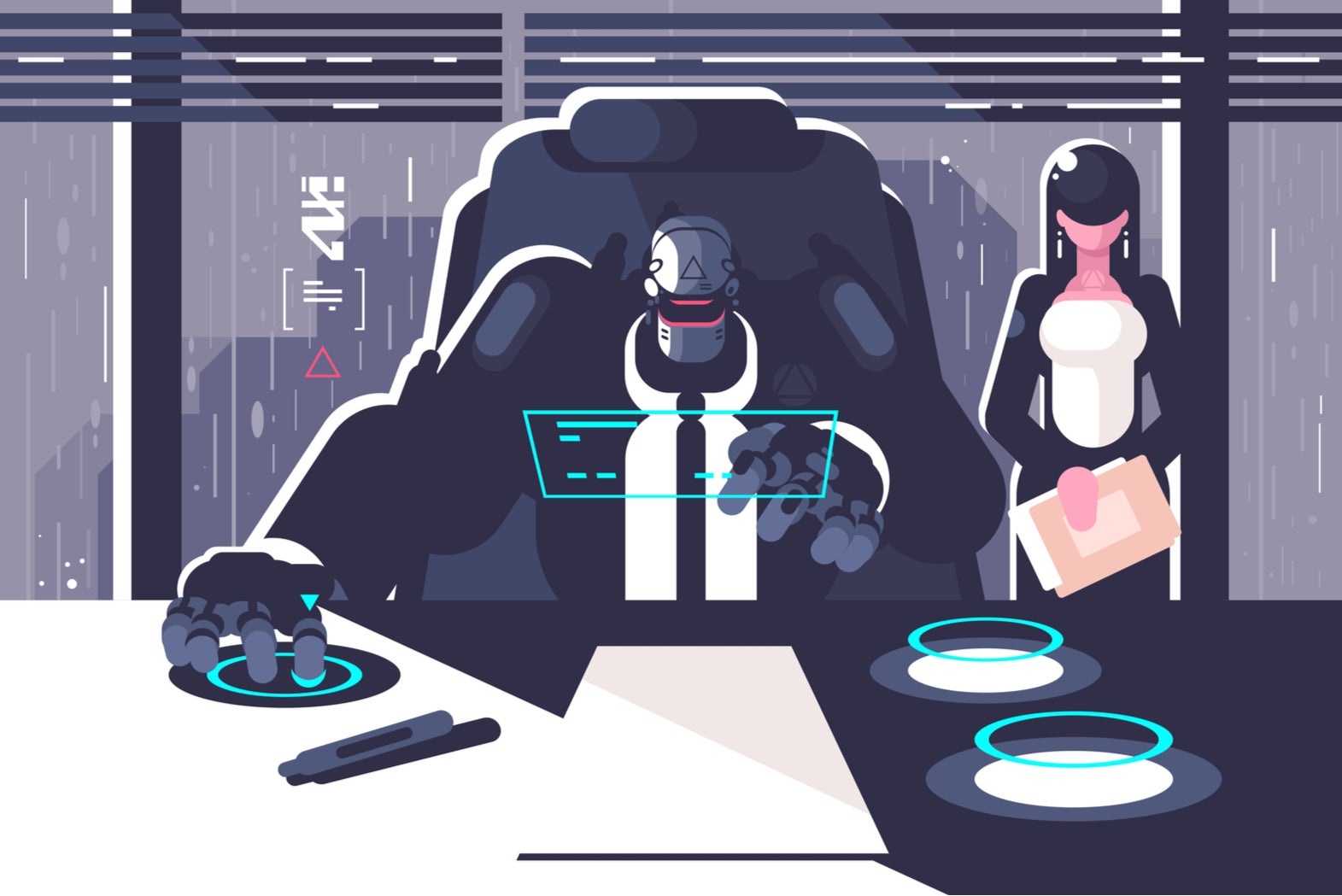
Fears over the rise of artificial intelligence, automation and robots are often downplayed. Numerous studies will tell you that future robots aren’t going to steal your job and leave you unemployed… but lingering fears left behind by hit films like The Terminator remain.
If director James Cameron’s script proves true, in just ten years time, humanity will have been overthrown by Skynet, an artificial neural network, and cyborg assassins will watch over our every move.

Access deeper industry intelligence
Experience unmatched clarity with a single platform that combines unique data, AI, and human expertise.
According to a recent survey by software company Pegasystems, some 31% are concerned that AI threatens their jobs. Likewise, a third fear that robots will enslave humanity. But what is the most likely reality?
Verdict questioned experts in the field of AI and robotics on how they expect robotics to have progressed in a decade, and what role robots are likely to play in future society.
A human’s best friend
With rapid advancements in artificial intelligence and robotics set to drastically reshape the workforce, there are concerns over the jobs that are being lost, and will continue to be lost.
However, for those that aren’t replaced by machines, robots will provide a much-welcomed productivity boost by allowing workers to focus on the more meaningful, creative tasks.

US Tariffs are shifting - will you react or anticipate?
Don’t let policy changes catch you off guard. Stay proactive with real-time data and expert analysis.
By GlobalData“By 2030 I expect to see much more automation in the workplace, as currently we’re barely scratching the surface,” Thomas Knudsen, general manager Northern Europe, OnRobot, told Verdict.
“Let me be clear, robots will not replace humans; instead, they will complement their activities and take on the dangerous, heavy lifting roles so humans can add value elsewhere,” Knudsen said. “Freeing up humans to add value elsewhere will not only make them more efficient, but engage them too, making the workplace more enjoyable.”
However,Tim Deeson, CEO of chatbot agency GreenShoot Labs, doesn’t believe that robots will remain in such a primitive form, with AI advancements likely to greatly expand the capabilities of these machines and eventually transform them into something more human-like.
“I believe it [AI advancement] will be very impactful, but perhaps not as dramatic as The Terminator!” Deeson told Verdict.
“Right now, these tools don’t have a lot of autonomy: we ask them basic questions about, for example, our calendars, and they respond based on exactly what they see. But soon these virtual assistants will begin to use AI more and will become more like traditional human assistants, who are praised for their ability to understand our goals, dislikes and ideal scenarios.”
Business will see biggest impact
AI development is largely targeted towards business – according to MMC Ventures’ The State of AI report, some businesses make up 87% of the customer base of AI startups, and while there aren’t any statistics to back it up, you are far more likely to hear about innovations in robotics for business-use than that droid butler we’re all waiting for.
According to Matt Wichrowski, European launch lead, Entrepreneur First, businesses are already finding “high-level” applications for robotics, and those potential applications will continue to increase over the next decade, with those digital leaders that are taking the plunge now now likely to see the biggest reward:
“Often predictions about future robots tend to fall into one of two categories – either they’re going to automate simple, repetitive and mundane tasks, or else they’re going to rise up and take over the world. But the reality is that many of the real-world use cases of robots are often surprisingly high-level business applications.”
“Being at the frontier of robotics will unlock huge value as new opportunities are uncovered,” Wichrowski told Verdict.
Do humans pose the biggest threat?
“Automation is not the enemy – just like computers have made our lives easier, so too will robots,” Knudsen told Verdict.
There is potential for the development of advanced AI and robotics to go wrong. However, this would be the fault of the creator, rather than the monster itself, according to Dr. Scott Zoldi, chief analytics officer at FICO.
“As a data scientist who has spent his career working in AI research, I’m not scared of a future of marauding robots,” Zoldi told Verdict. “What scares me isn’t the Terminator, but the cowboy – the data science cowboy who works fast with a disregard for safety controls.”
There is already widespread discussion regarding the use of limited, incorrect and often bias data in the development of AI models, as well as many notable examples of these systems displaying biases as a result of the data used to create them. Amazon recently scrapped an AI recruitment tool, for example, after it showed signs of bias against female candidates.
If, or when we achieve artificial general intelligence – the point where artificial machines are capable of understanding and learning as humans do – the consequences of bad development could be far greater.
Read more: A new age of retail: The rise of conversational commerce







